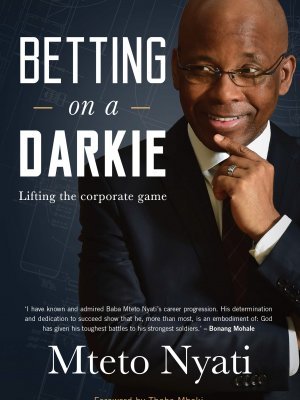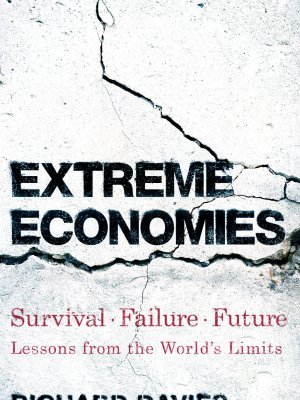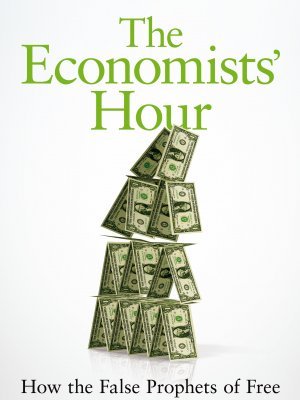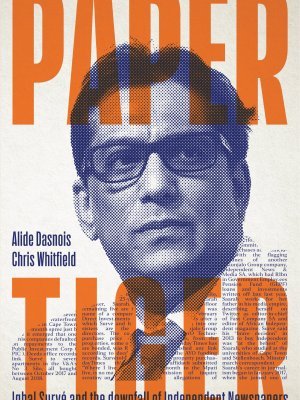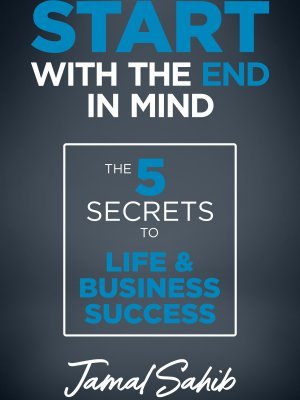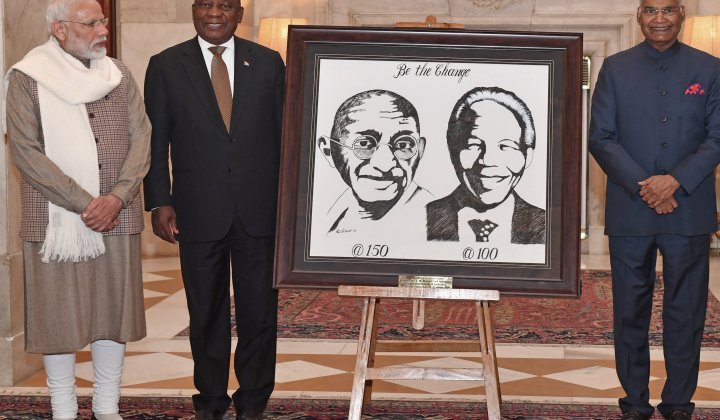Mindf*ck – Inside Cambridge Analytica’s Plot to Break the World
Christopher Wylie
Profile Books – R305
The premise is simple: click ‘Like’ on Facebook and you start to build a profile about yourself that others can see. With 10 likes, your behaviour can be predicted more accurately by a computer model than by a co-worker.
“With 150 likes, better than a family member. And with 300 likes, the model knew the person better than their own spouse,” explains Christopher Wylie, the person who set up the data mining that underpinned Cambridge Analytica and then blew the whistle on his own creation.
Imagine, then, the power of such knowledge multiplied a million times. Or 10 million. Apply it to analyse voters that might be inclined to elect a complete outsider like Donald Trump, or use it to swing key segments of a country’s electorate into voting for Brexit.
For Wylie, gay, pink-haired and nose-ringed, a young Canadian who had drifted into election politics in his native land and then in Britain, it started as a very cool game. Imagine targeting very specific groups like Incels – young, white men, angry at the fact that they were not getting enough sex – Involuntary Celibates. How could that anger be channelled?
But from there it was a very short step from targeting such groups to controlling their thought processes using fake news, false advertising and dummy Facebook sites and much of this activity ostensibly funded by the Russians and directed by Trump’s éminence noir, Steve Bannon.
As quickly as Wylie had seen the possibilities, he also saw the dark void he had helped create and turned whistle-blower. If you have followed the Cambridge Analytica saga via the writing of journalist Carole Cadwalladr in Britain’s The Guardian newspaper, you’ll read Mindf*ck as the insider’s story. But if you only vaguely know about it, this book is a must-read, especially if you are on Facebook.
(And once you have finished reading it, you might decide that Facebook is not such a good idea, after all!)
Paper Tiger
Alide Dasnois, Chris Whitfield
Tafelberg – R260
When a history of post-apartheid South Africa is written, one of its more bizarre chapters will feature a character called Dr. Iqbal Survé. He is a medical doctor and a businessman – founder of the Sekunjalo Group. Among other claims and exaggerations, Survé says he was Nelson Mandela’s physician, which is almost certainly not true.
What is true, however, is that he raised a very large sum of money from the Public Investment Corporation (PIC) to buy Independent Media South Africa from its Irish owners. That transaction and several others have been under scrutiny at the PIC Commission of Inquiry, chaired by judge Lex Mpati.
Independent Newspapers is the company that publishes The Star, Cape Times, The Argus and several other of South Africa’s most venerable newspaper titles. Paper Tiger is the personal account by two former senior staffers of how, in their view, Survé has destroyed these titles. They are former Cape Times editor Alide Dasnois and former editor-in-chief of Independent Newspapers Cape, Chris Whitfield.
It’s also the story of how Dasnois was fired by Survé for the way she covered the death of Mandela, using a special wrap-around cover for the Cape Times, and leaving intact a front-page story about a Public Protector report into one of Survé’s companies.
A tragedy for the many individuals forced out by Survé, a tragedy for South Africa’s media landscape and a salutary lesson in how not to do black economic empowerment.
The Economists’ Hour
Binyamin Appelbaum
Pan Macmillan – R330
and
Extreme Economies
Richard Davies
Bantam Press – R320
The Economists’ Hour is a book whose sub-title gives the game away – How the False Prophets of Free Markets Fractured Our Society. Appelbaum, who writes about economics and business for the New York Times, sets out his stall with an absolute clarity of purpose: he will demonstrate how the free-marketeers and their high priest, Milton Friedman, were wrong and show that markets do benefit from regulation.
In doing so, Appelbaum charts a course through American economic history, from roughly the 1930s and the Great Depression to the present day. I should note at this point that the ‘Our Society’ of the subtitle refers to the USA, and nowhere else. Only in passing does the author acknowledge that, despite the best efforts of Margaret Thatcher, the Europeans have always had a much more nuanced view of the relationship between regulation and markets.
The problem with his approach is that it’s like reading a legal brief: the case for the prosecution of free markets. The evidence is gathered, piece by piece, and applying it to current examples like the two Boeing 737 MAX disasters, is compelling. It would appear that there is a very clear and obvious example of too much free market and too little regulation, with the U.S. Federal Aviation Administration (FAA) accused of handing over certification of the ill-fated plane to the very people who manufactured it.
This ignores a range of other factors. In the 737 MAX case, for example, did the FAA cede control of certification to Boeing because of a fervent belief in free markets, or because of intense pressure from central government to reduce headcount and lower costs? What about the endless and corrosive procession of officials going back and forth between government and big business in the US?
To pin the blame on free markets alone is to over-simplify. It also runs the risk of re-introducing the dead hands of statism and bureaucracy. Just ask any South African about Eskom or SAA to discover how destructive those can be.
Far more thoughtful is Extreme Economies, by former economics editor of The Economist, Richard Davies. Now a fellow at the London School of Economics, Davies sets out to discover why some economies work and some fail, and then to use that knowledge to try and glimpse into the future.
His method, which is well understood in many branches of science, was first set out by a 17th century doctor, William Harvey, who realised that “the extremes of life offer important lessons”. Harvey applied this to a child very badly injured in a riding accident and, in so doing, discovered the circulation of blood.
Davies visits three extreme examples of economies that ought to have failed: the province of Aceh and its capital, Banda Aceh, in Indonesia, flattened in December 2004 by a tsunami; the Zaatari camp for Syrian refugees in Jordan; and the Louisiana State Penitentiary – Angola – in the US. Yet all are thriving and adapting. Why?
These are followed by three examples of economies which are heading firmly in the opposite direction: Darien, the gap between Columbia and Panama; the DRC’s capital, Kinshasa; and one of Scotland’s premier cities, Glasgow. Again, why?
Without revealing Davies’s conclusions, it’s fair to say that he has examples of free market success and failure, and also the complete failure of regulation to achieve its goals.
Finally, he takes us into the future: Akita, a part of Japan where the elderly dominate; Talinn, capital of Estonia, a digital dreamland where the government is allowed to contact you for information once and once only; and – particularly apt at the moment - Santiago, the capital of Chile, riven by inequality and which Davies blames unequivocally – Binyamin Appelbaum would approve – on the Chicago school, free market doctrines imported during the 1960s.
It’s an approach to the subject that is enlightening, interesting and, given the South African context and our economic problems, very well worth reading.
Start with the End in Mind
Jamal Sahib
Tracey McDonald Publishers – R230
Start with the end in mind, exhorts our author. In fact, I would suggest starting at the very end of the book and its back cover, where you’ll see a picture of Jamal Sahib. Yes, he really is like that: high energy, intense, driven and extremely successful.
I first had the pleasure of meeting him shortly after he and his GIBS MBA colleagues had won the Zurich Insurance Group’s prestigious international Project Firefly initiative. All of them high achievers, Sahib was primus inter pares, if only for his energy. I was photographing the group for this magazine and immediately had the sense that if I were to accidentally bump into him, I would likely receive a mild electric shock.
What I subsequently learned was that he was also in the process of stepping out of the corporate world to found a series of businesses, among them a coaching practice. It’s that experience that he brings to this book, with its subtitle ‘The 5 Secrets to Life & Business Success’.
It’s an offering which enters a highly crowded market, a fact that Sahib himself acknowledges through his many references to other authors also operating in the same space. He gives us coloured caps to help with personal understanding, double-sided ladles to scoop energy out of our buckets, ‘in the box’ thinking to assist with self-deception and much more, all done at break-neck speed and seasoned with many of the standard business clichés, along with references to Robin Sharma, Mel Robbins and Richard Branson.
And herein lies the book’s problem. I’m not convinced that the multitude of voices in these pages is the real Jamal Sahib. Yes, they may well be an accurate reflection of what he teaches and coaches right now, but they are borrowings, a grab-bag of ideas that he has picked up along the way.
We all do this, of course; it’s part of learning. But sooner or later, the real stand-outs in this overcrowded field develop their own individual voice and style. I have no doubt that will happen to Jamal Sahib, too, and I look forward to reading him again, when it does.
Betting on a Darkie
Mteto Nyati
Kwela Books – R280
Would that we could clone Mteto Nyati and install him at the likes of Eskom, SAA, and Transnet. There is a case to be made that he is South Africa’s most successful black manager and his skills and abilities are sorely needed at so many of our decrepit SOEs.
Part of that success stems from the fact that he’s an engineer by training. He started his career as Afrox’s first black engineering graduate, going on to Nampak, IBM, Microsoft South Africa and MTN South Africa. At the last two, he was CEO and he is currently CEO of Altron, engaged in a successful turnaround.
“Engineers often make good CEOs because they have a built-in desire to make things work,” says Nyati.
Although he’s committed to the ANC and transformation, the same attitude causes him to be scathing towards ex-president Jacob Zuma and others of his ilk.
“Revering big talkers and fast-living populists is dangerous because they seldom propose concrete solutions,” he says.
What does transformation mean to Nyati? His view is clear and compelling: “If you can create a company that can survive in South Africa, it can survive anywhere. That is radical economic transformation – creating enterprises in new growth areas, not destroying existing enterprises.”
His book is studded with gems like these, but Nyati should have allowed himself more. Structurally, this autobiography is flawed. It reads in strict chronology, from his time as a child in rural Transkei, through his developing career to his current position. Each section is broken by letters of praise from former colleagues, which turn Betting on a Darkie into something of a hagiography. Ultimately, a tough, classic biography, written by an objective outsider, might have done this fascinating, talented and forthright leader a better service.



